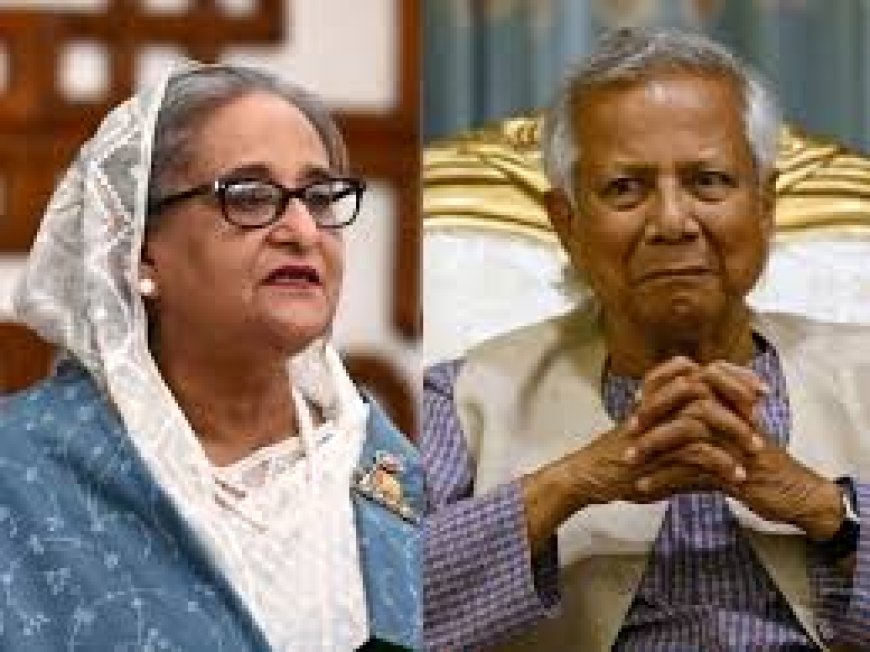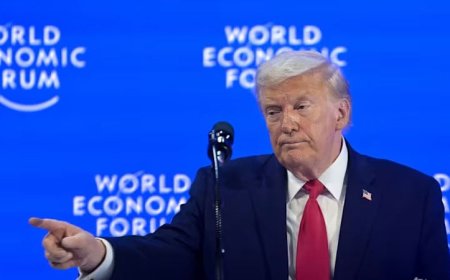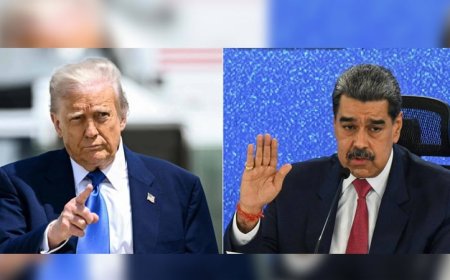The Yunus administration plans to prevent Sheikh Hasina's Awami League and allied parties from participating in Bangladesh’s elections
The Yunus administration plans to prevent Sheikh Hasina's Awami League and allied parties from participating in Bangladesh’s elections

New Delhi: The interim government in Bangladesh, led by Muhammad Yunus, is set to restrict former Prime Minister Sheikh Hasina Wazed’s Awami League from participating in political activities. Legal and administrative measures will be applied to the Awami League and allied parties to limit their political involvement, Mahfuj Alam, a student activist and special assistant to Chief Adviser Yunus, informed journalists in Dhaka on Sunday. Alam stated, “Those who participated in the last three elections and entered parliament through deceptive means will face obstacles in their political participation imposed by the interim government.” According to Bangladesh’s largest daily newspaper, discussions held between Yunus and 10 political parties included demands to bar the Awami League and its allies from the upcoming national elections. Fourteen parties allied with the Awami League were not part of these discussions regarding the upcoming elections.
Addressing the potential ban, Alam clarified, “The government will not make this decision unilaterally,” emphasizing that the final decision will follow consultation with various political parties. Notably, the Bangladesh Nationalist Party (BNP) and Jamaat-e-Islami, traditional rivals of the Awami League, have expressed opposition to banning Hasina’s party. BNP Secretary-General Mirza Fakhrul Islam Alamgir stated, “Unlike Sheikh Hasina, we do not believe in banning a political party as a means of retribution. We want the Awami League to contest in elections, where we aim to defeat them fairly.”
On September 1, Dhaka’s High Court dismissed a petition to ban the Awami League and cancel its registration, citing alleged “student killings” during mass protests. Later, on October 17, the International Crimes Tribunal issued arrest warrants against Hasina and 45 party members for alleged crimes during these events.
Yunus’s Governance and Parallels to Hasina’s Tactics
Taking office on August 8, Yunus pledged to restore stability, public trust, and judicial independence in the wake of recent turmoil. However, the interim government's current stance on curbing the Awami League’s activities has drawn comparisons to Sheikh Hasina's governance style, often criticized for targeting opposition. During her term, Hasina’s government imprisoned opposition leaders, dispersed protests with force, and faced scrutiny over election practices. Khaleda Zia, Bangladesh’s other female Prime Minister, accused Hasina of vote-rigging in the 2014 and 2018 elections, while her 2018 conviction barred her from running in the 2019 election. In 2013, Jamaat-e-Islami was banned from elections for inconsistencies with Bangladesh’s secular constitution.
Controversies Surrounding the Interim Government’s Agenda
Since Yunus took office, his administration has faced growing concerns, particularly regarding the upcoming elections and historical reinterpretation. BNP’s senior joint secretary, Ruhul Kabir Rizvi, criticized the government’s delay in announcing an election timeline at a rally in Bera upazila of Pabna. However, the Yunus-led government has assured that elections are forthcoming, with plans to form a search committee for appointing a new chief election commissioner and commissioners, as Mahfuj Alam announced on Sunday.
Yunus’s recent remarks about the need for a “reset” for Bangladesh in an interview with Voice of America garnered attention, prompting clarification from his office. “Resetting the software means starting afresh but does not change the hardware. The Liberation War of 1971 created Bangladesh’s foundational ‘hardware,’” the statement explained. Additionally, the interim government has canceled all national holidays associated with Sheikh Mujibur Rahman, Hasina’s father and the ‘father of the nation.’ In response, the Awami League accused Yunus’s administration of attempting to erase memories of the Liberation War.
What's Your Reaction?





















































































